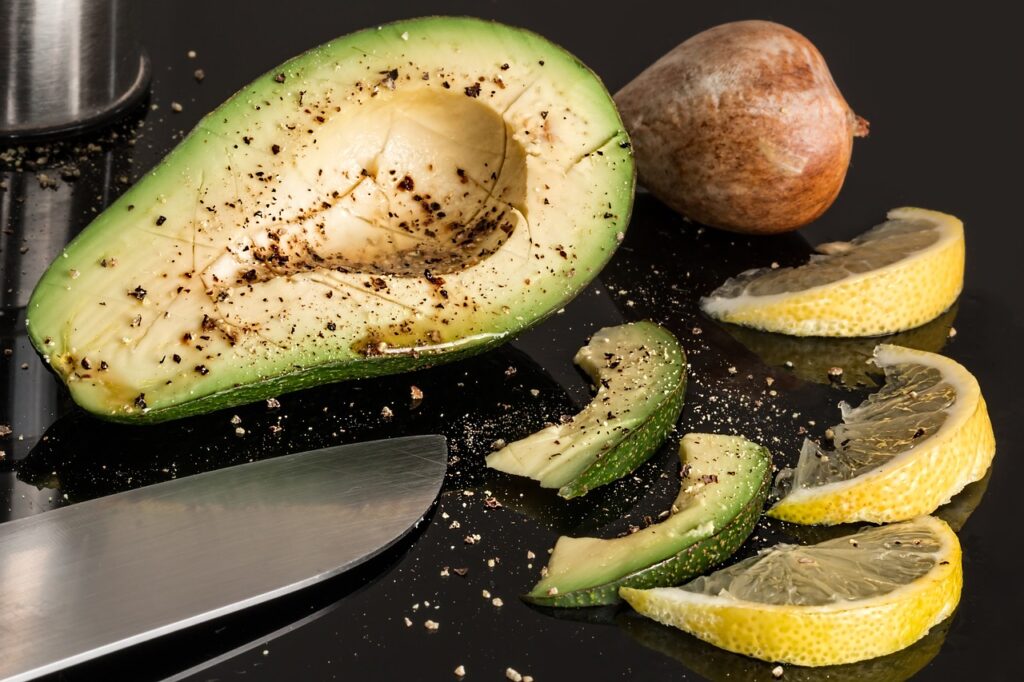Healthy vs. Unhealthy fats:
Healthy fats and Unhealthy fats play crucial roles in our overall health, influencing everything from heart function to brain health. People are very confused about which food have healthy fats and which food have Unhealthy fats. Debate is continuing on healthy vs. unhealthy fats. Healthy vs. unhealthy fats are very popular topic now a days in fitness industry. Let’s explore the distinctions between these two types of fats in a more detailed manner. People have a misconception that fats are to be avoided or fats are not good for health. To get more information, click here to read more about.
In the field of nutrition, the choices we make regarding fats can significantly impact our well being. It’s a tale of two categories: Healthy fats, the unsung heroes that nourish our bodies and promote overall health and Unhealthy fats, the villains that may responsible for our cardiovascular system. Delving into this dietary duality reveals the importance of understanding the sources and effects of fats on our bodies. Let us explore the dynamic interplay between these two types of fats, deciphering the keys to a heart healthy and nutritionally sound lifestyle.

Healthy vs. unhealthy fats:
Let’s first understand about healthy fats:
Healthy fats are essential for a balanced diet, providing many health benefits. These fats has 2 categories, monounsaturated fats and polyunsaturated fats.

Monounsaturated Fats:
Sources of Monounsaturated fats:
- Found in olive oil, avocados, dark chocolates and nuts. Monounsaturated fats are beneficial for promoting heart health by reducing bad cholesterol levels (LDL) and increasing good cholesterol levels (HDL).
- Avocados are unique fruits, which contain carbs and loaded with healthy fats. Avocados are about 80% fat by calories, making them even higher in fat than most animal foods.
- Additionally, according to one study, 50 men and women found that consuming one avocado daily for seven weeks had favorable effects on cholesterol reports.
- Moreover, they are also good source of fiber, which offers lots of digestive health, heart health and weight management benefits.
- Choose dark chocolate with at least 70% cocoa, as other varieties are higher in added sugar and lower in the nutrient. In addition, dark chocolate contains fiber and several nutrients, such as, iron and magnesium.
- Healthy nuts such as soaked almonds and walnuts, have numerous health benefits. Study shows that people who eat nuts tend to have a lower rate of obesity and a lower risk of heart diseases.
- Extra virgin olive oil has oleic acid, a fatty acid with powerful anti inflammatory properties. According to one study, consumption of olive oil is beneficial for heart health, blood sugar management and weight management.
- These fats also contain antioxidants that help combat inflammation, lowering the risk of chronic diseases.
Polyunsaturated Fats:
Sources of Polyunsaturated fats:
- Essential fatty acid, such as Omega-3 and Omega-6 fats, belong to polyunsaturated fats and play a crucial role in brain function, cell growth and development.
- Polyunsaturated fats are fat molecules that have more than one saturated carbon bond in the molecule. These fats are usually liquid at room temperature and are known as “oils”.
- Sources are fatty fish (salmon, mackerel), flaxseeds, chia seeds and walnuts.
Unhealthy fats:
On the other hand, Unhealthy fats are responsible for negative health outcomes and we should consume in moderation.
Types of unhealthy fats:
Saturated Fats:
- Commonly found in animal products like red meat, full-fat dairy and tropical oils (palm oil, refined oil). Saturated fats can raise LDL cholesterol levels, contributing to cardiovascular issues.
- High intake of saturated fats is responsible for the risk of heart disease.
- While coconut and ghee are both saturated fats, they differ in their composition. Coconut contains medium chain triglycerides (MCTs) such as lauric acid, which are metabolized differently than long-chain triglycerides (found in many other saturated fats). MCTs may have potential health benefits,, such as being quickly converted into energy.
- Ghee, a form of clarified butter contains saturated fats, but is also a source of fat soluble vitamins and conjugated linoleic acid, which may have anti-inflammatory properties. Additionally, ghee lacks the milk solids present in butter, making it suitable for those lactose intolerance.
Trans Fats:
- Trans fats are artificially created through a process called hydrogenation, found in many processed and fried foods. Such as Burger, french fries, wafers and chips.

- Over Consumption of trans fats is responsible for heart disease and many lifestyle disorders, Such as obesity, type 2 diabetes, hypertension, increased bad cholesterol and hypothyroidism.
Balancing Fat intake:
Recommended Daily Intake:
- While fats are an essential part of a healthy diet, moderation is key. The American Heart Association suggests that fats would be constitute about 20 to 35% of total daily calories.
Understanding Dietary Needs:
- Individual dietary needs vary based on factors such as age, sex and physical activity level. Tailoring fat intake into individual requirements is crucial for maintaining optimal health.
Choosing Wisely:
- Select the sources of healthy fats like olive oil, fatty fish and nuts. Limit the consumption of saturated and trans fats found in processed and fast foods.
Cooking Methods:
- Cooking methods also influence the healthiness of fats. Choose methods like baking, grilling or sauteing over deep frying to preserve the nutritional value of fats.
Health Impacts:
Heart Health:
- A diet rich in healthy fats such as Omega 3 fatty acid, is responsible for lower risk of heart disease, reducing plaque buildup in the arteries and decreasing triglycerides in the blood. while excessive intake of saturated and trans fats can contribute to heart related issues.
Brain Function:
- Omega-3 fatty acids, DHA found in fatty fish, olive oil, walnuts and avocados are crucial for brain health and can positively impact cognitive function and prevent Alzheimer’s disease.
- They support the structure of cell membranes in the brain and are involved in neurotransmitter function promoting and potentially reduce the risk of neurodegenerative disease.
Weight Management:
- Contrary to misconception on healthy vs. unhealthy fats, that fats lead to weight gain, healthy fats can contribute to satiety, provide feeling of fullness, helping control overall calorie intake and support weight management.
Boost Immunity:
- Healthy fats such as olive oil, flax seeds, chia seeds supply Omega 3 fatty acids, which help reduce inflammation and regulate immune cell activity.
Conclusion:
In conclusion, understanding the distinctions between healthy vs. unhealthy fats is vital for making informed dietary choices. Follow a balanced meal and incorporating a variety of nutrient-dense foods contribute to overall wellbeing and long-term health. To gain more insights on how healthy fats are essential for our wellness, then read my latest book, The magical ways for sparkling lifestyle. To know more on healthy vs. Unhealthy fats, follow my Instagram page.

Leave a Comment